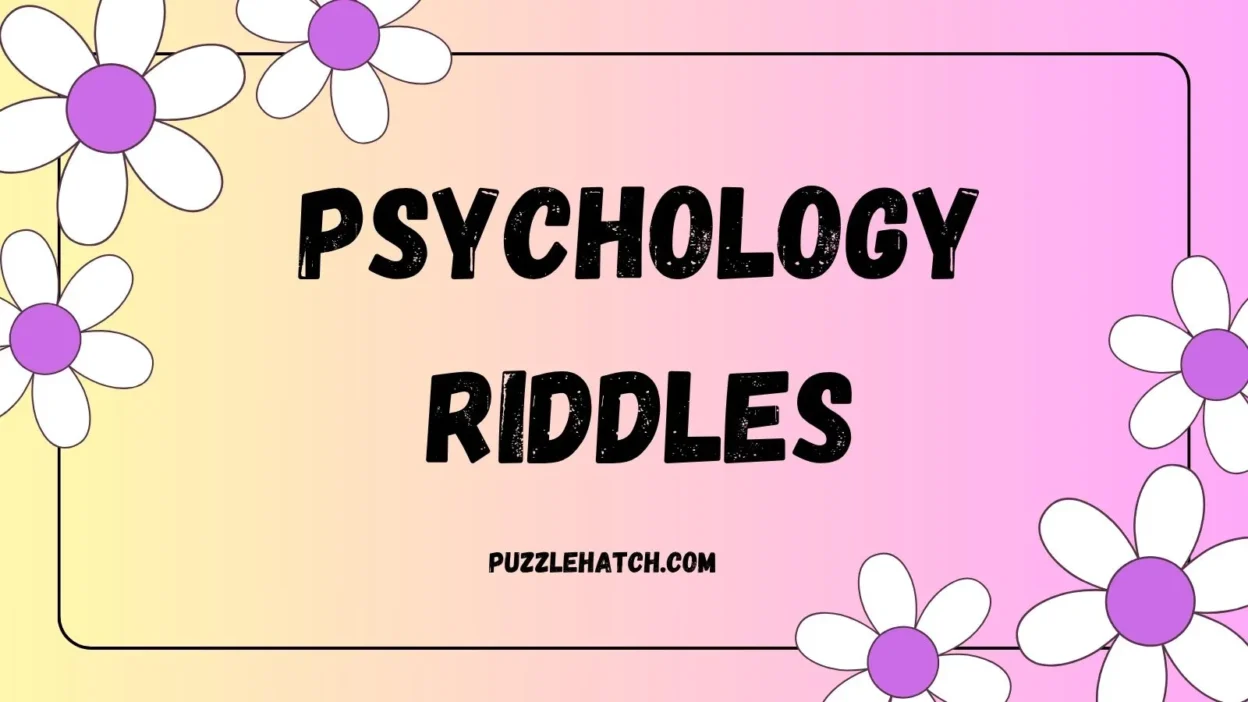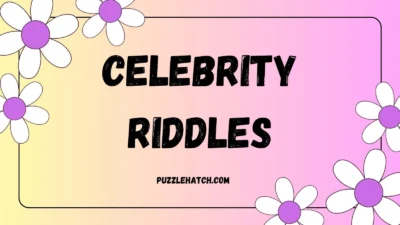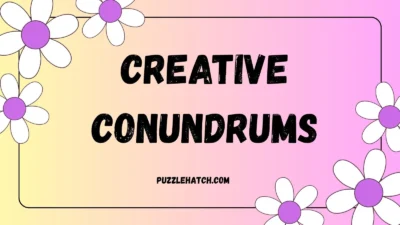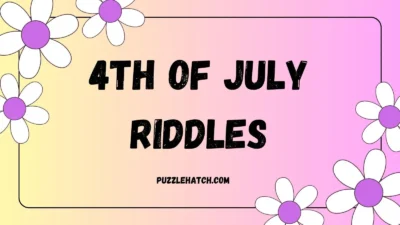Unlock the secrets of human thought, behavior, and perception through the power of riddles. In “Puzzle of the Mind: 350 Psychology Riddles 2025”, we dive deep into the human psyche with brain-challenging questions that reflect real psychological principles.
These riddles are designed to spark curiosity, improve cognitive flexibility, and enhance emotional insight—making them ideal for educators, students, psychologists, and anyone intrigued by the workings of the mind.
From classic logic riddles rooted in behavioral psychology to modern conundrums inspired by neuroscience, this article offers a dynamic mental workout with each section aligned with concepts like critical thinking, self-awareness, mental agility, and psychological reasoning.
Cognitive Curiosity Riddles
- I’m a test used to measure mental sharpness. I come in blocks, puzzles, and questions. What am I?
Answer: IQ test - I occur when your brain fills in missing information. What psychological concept am I?
Answer: Perception - You believe you’re right even when evidence proves otherwise. What is this called?
Answer: Cognitive bias - I’m a mental shortcut used for quick judgments. What am I?
Answer: Heuristic - I trick your mind into seeing what’s not really there. What psychological illusion am I?
Answer: Optical illusion - I’m the mental tug-of-war between impulse and reason. What am I describing?
Answer: Cognitive dissonance - I’m the filter that decides what enters your conscious awareness. What process is this?
Answer: Attention - I store emotions tied to memories. What part of the brain am I?
Answer: Amygdala - I’m a hidden bias that shapes your actions unconsciously. What am I?
Answer: Implicit bias - I make you remember things differently than they happened. What memory error is this?
Answer: False memory
Emotional Intelligence Challenges
- I let you understand others’ feelings without words. What skill is this?
Answer: Empathy - I’m a state where your emotions override logic. What am I called in psychology?
Answer: Emotional hijacking - I’m the ability to regulate your emotions. What emotional intelligence trait is this?
Answer: Self-regulation - I tell you how to respond to social cues. What am I in behavioral terms?
Answer: Social intelligence - I help you handle stress effectively. What coping skill is this?
Answer: Emotional resilience - I measure how well you relate to others emotionally. What scale is this?
Answer: EQ (Emotional Quotient) - I lead you to mimic emotions you observe. What effect is this?
Answer: Mirror neuron effect - I’m your ability to stay calm under pressure. What psychological strength is this?
Answer: Emotional stability - I can create guilt or compassion depending on perception. What emotion am I?
Answer: Empathy - I’m what you feel when your emotional needs go unmet. What is this psychological state?
Answer: Emotional deprivation
Memory Maze Riddles
- I fade over time but leave an emotional trace. What memory type is this?
Answer: Episodic memory - I’m the memory error that makes you think you knew all along. What effect am I?
Answer: Hindsight bias - I block access to certain memories as a defense. What is this called?
Answer: Repression - I repeat info aloud to keep it in short-term memory. What is this process called?
Answer: Rehearsal - I’m a type of memory that helps you tie your shoes. What memory am I?
Answer: Procedural memory - I’m the effect of a traumatic memory returning without warning. What is this?
Answer: Flashback - I make you falsely remember events that never happened. What is this error?
Answer: Confabulation - I help you remember by creating strong associations. What technique is this?
Answer: Mnemonics - I store your memories temporarily. What memory system is this?
Answer: Working memory - I’m responsible for long-term memory consolidation. What brain region am I?
Answer: Hippocampus
Personality Puzzle Riddles
- I’m the “Big Five” trait linked to creativity and open-mindedness. What trait am I?
Answer: Openness - I make you feel energized by being alone. What personality type are you?
Answer: Introvert - I am a psychological test used to reveal traits. What kind of tool am I?
Answer: Personality assessment - I’m the inner voice that criticizes you. What ego function is this?
Answer: Superego - I balance between impulsive desires and moral reasoning. Who am I?
Answer: Ego - I prefer structure and order. What personality trait is this?
Answer: Conscientiousness - I avoid conflicts but internalize emotions. What type of behavior is this?
Answer: Passive - I’m always the center of attention. What personality disorder could this reflect?
Answer: Narcissistic Personality Disorder - I change depending on my environment. What concept am I?
Answer: Situational personality - I’m influenced by both nature and nurture. What am I referring to?
Answer: Personality development
Behavioral Science Brain Teasers
- I increase behavior by giving rewards. What principle am I?
Answer: Positive reinforcement - I stop behavior by removing something unpleasant. What behavioral method is this?
Answer: Negative reinforcement - I occur when a behavior disappears after ignoring it. What process am I?
Answer: Extinction - I’m a stimulus that naturally triggers a response. What am I?
Answer: Unconditioned stimulus - I come after a behavior to increase repetition. What am I?
Answer: Reinforcer - I teach behavior through imitation. What learning model is this?
Answer: Observational learning - I’m a consistent pairing of stimuli. What learning process am I?
Answer: Classical conditioning - I’m behavior shaped through small steps. What strategy is this?
Answer: Shaping - I happen when old learning interferes with new. What memory issue is this?
Answer: Proactive interference - I decrease behavior by adding a negative consequence. What principle am I?
Answer: Positive punishment
Perception and Illusion Riddles
- I make a straight stick look bent in water. What visual effect is this?
Answer: Refraction - I’m a perception that differs from reality. What psychological experience am I?
Answer: Illusion - I make you hear your name even in noise. What cognitive filter is this?
Answer: Cocktail party effect - I process motion, depth, and shape. What part of the brain does this?
Answer: Visual cortex - I occur when your brain guesses incorrectly. What error is this?
Answer: Misperception - I stay constant even when light or angle changes. What is this called?
Answer: Perceptual constancy - I make a still image appear to move. What illusion is this?
Answer: Motion illusion - I let you see faces in clouds. What cognitive bias is that?
Answer: Pareidolia - I trick your sense of space and direction. What kind of illusion is this?
Answer: Spatial illusion - I interpret raw sensory input. What mental process is this?
Answer: Perception
Social Psychology Riddles
- I’m the tendency to conform in groups. What is this behavior called?
Answer: Peer pressure - I happen when you follow authority blindly. What famous experiment explored this?
Answer: Milgram experiment - I’m the error of blaming personality over circumstances. What bias is this?
Answer: Fundamental attribution error - I make you act differently in crowds. What psychological phenomenon is this?
Answer: Deindividuation - I create group loyalty but can lead to conflict. What is this?
Answer: In-group bias - I’m when people watch but don’t help. What is this called?
Answer: Bystander effect - I change behavior based on how I think others see me. What theory is this?
Answer: Looking-glass self - I’m a mental shortcut based on stereotypes. What bias is this?
Answer: Representativeness heuristic - I cause tension when actions and beliefs clash. What term is this?
Answer: Cognitive dissonance - I conform because I want to fit in. What type of influence is this?
Answer: Normative social influence
Consciousness and Awareness Riddles
- I’m your awareness of internal and external stimuli. What state is this?
Answer: Consciousness - I help you sleep and wake in rhythm. What cycle am I?
Answer: Circadian rhythm - I’m the relaxed state just before sleep. What brainwave is dominant here?
Answer: Alpha waves - I’m a dream you know you’re dreaming in. What dream state is this?
Answer: Lucid dream - I make time feel slow in danger. What altered state am I?
Answer: Fight-or-flight response - I shut down your awareness temporarily. What state is this?
Answer: Unconsciousness - I’m a substance that alters your mental state. What am I?
Answer: Psychoactive drug - I make you unaware of surroundings while daydreaming. What state is this?
Answer: Dissociation - I suppress your thoughts from entering awareness. What defense mechanism is this?
Answer: Repression - I regulate sleep cycles deep in the brain. What structure is this?
Answer: Hypothalamus
Psychological Disorders Riddles
- I cause mood swings between highs and lows. What disorder is this?
Answer: Bipolar disorder - I make you fear places where escape is hard. What anxiety disorder is this?
Answer: Agoraphobia - I’m persistent sadness for weeks or longer. What condition is this?
Answer: Major depression - I cause irrational fears of specific things. What type of disorder is this?
Answer: Specific phobia - I make you relive trauma repeatedly. What disorder is this?
Answer: PTSD - I distort your sense of reality. What disorder am I?
Answer: Schizophrenia - I involve repetitive behaviors like counting. What disorder is this?
Answer: OCD - I lead to extreme body image distortion. What condition is this?
Answer: Body dysmorphic disorder - I create alternating identities. What disorder is this?
Answer: Dissociative identity disorder - I make you feel overly anxious all the time. What condition is this?
Answer: Generalized anxiety disorder
Developmental Psychology Riddles
- I help babies form emotional bonds. What is this process called?
Answer: Attachment - I’m the stage of adolescence marked by identity searching. Who described me?
Answer: Erik Erikson - I’m when a child copies what they see. What is this learning style?
Answer: Imitation - I appear at birth and fade with age. What reflex is this?
Answer: Moro reflex - I refer to a child’s ability to think abstractly. What stage is this in Piaget’s theory?
Answer: Formal operational - I develop first: trust or shame? According to Erikson?
Answer: Trust - I let toddlers understand others have different thoughts. What is this skill?
Answer: Theory of mind - I guide growth in stages through childhood. What framework is this?
Answer: Developmental milestones - I refer to a child’s temperament and mood. What aspect of development is this?
Answer: Emotional development - I emerge when a child recognizes themselves in a mirror. What is this called?
Answer: Self-recognition
Learning and Conditioning Riddles
- I’m the process of acquiring new behavior through experience. What am I?
Answer: Learning - I was discovered by Pavlov using dogs. What kind of learning is this?
Answer: Classical conditioning - I reinforce behavior by giving rewards. What am I?
Answer: Operant conditioning - I fade learned behavior over time. What’s this called?
Answer: Extinction - I happen when you get used to a stimulus. What is this learning process?
Answer: Habituation - I’m the immediate response after stimulus learning. What phase am I?
Answer: Acquisition - I increase behavior by removing discomfort. What type of reinforcement is this?
Answer: Negative reinforcement - I reduce behavior by applying something unpleasant. What is this?
Answer: Punishment - I link a neutral stimulus to a response. What’s this called?
Answer: Association - I copy behavior after watching someone else. What process is this?
Answer: Modeling
Therapy and Treatment Riddles
- I involve talking to improve mental health. What therapy is this?
Answer: Psychotherapy - I change negative thought patterns. What therapy is this?
Answer: Cognitive Behavioral Therapy (CBT) - I use deep relaxation and suggestion. What treatment method is this?
Answer: Hypnotherapy - I expose you gradually to your fear. What technique is this?
Answer: Systematic desensitization - I use free association to access the unconscious. What kind of therapy is this?
Answer: Psychoanalysis - I work by balancing chemicals in the brain. What treatment is this?
Answer: Medication - I focus on the whole person and self-growth. What therapy is this?
Answer: Humanistic therapy - I provide unconditional support in a safe space. What therapy style is this?
Answer: Person-centered therapy - I change behavior using reinforcement schedules. What therapy is this?
Answer: Behavioral therapy - I use role-play to explore emotional conflict. What technique is this?
Answer: Gestalt therapy
Decision-Making and Judgement Riddles
- I cause you to choose based on how info is presented. What is this bias?
Answer: Framing effect - I’m a mental shortcut that uses immediate examples. What am I?
Answer: Availability heuristic - I make you stick with decisions even when wrong. What is this effect?
Answer: Sunk cost fallacy - I lead you to overestimate your ability to predict outcomes. What bias is this?
Answer: Overconfidence bias - I prefer avoiding loss more than gaining rewards. What principle is this?
Answer: Loss aversion - I ignore facts that contradict my beliefs. What bias is this?
Answer: Confirmation bias - I’m influenced by first impressions in decision-making. What effect is this?
Answer: Anchoring bias - I cause quick, gut-based decisions. What thinking system is this?
Answer: System 1 thinking - I involve slow, analytical reasoning. What type of thinking is this?
Answer: System 2 thinking - I am the theory behind how humans make choices. What am I?
Answer: Decision-making theory
Motivation and Drive Riddles
- I push you from within to act. What kind of motivation is this?
Answer: Intrinsic motivation - I come from rewards or punishments. What motivation type is this?
Answer: Extrinsic motivation - I sit at the top of Maslow’s hierarchy. What is this need?
Answer: Self-actualization - I explain motivation using drives and arousal. What theory is this?
Answer: Drive reduction theory - I’m the urge to master tasks and goals. What motivational force am I?
Answer: Achievement motivation - I’m the emotional reaction driving action. What psychological concept am I?
Answer: Affect - I’m the belief that your actions can change outcomes. What mindset is this?
Answer: Growth mindset - I help you persist through obstacles. What am I called in psychology?
Answer: Grit - I cause hesitation despite capability. What barrier is this?
Answer: Self-doubt - I’m the emotional reward of completing a goal. What am I?
Answer: Internal satisfaction
Psychological Experiments Riddles
- I tested obedience to authority with shocks. What study was this?
Answer: Milgram experiment - I showed the power of roles in prisons. What study was it?
Answer: Stanford prison experiment - I revealed false memories through suggestion. What researcher explored this?
Answer: Elizabeth Loftus - I involved a baby, a rat, and loud noises. What experiment is this?
Answer: Little Albert experiment - I proved that attitudes follow behavior. What famous experiment showed this?
Answer: Festinger’s cognitive dissonance study - I studied conformity using line lengths. What experiment is this?
Answer: Asch conformity experiment - I taught fear using conditioning. What principle was proven?
Answer: Classical conditioning - I helped explain learned helplessness in animals. What study is this?
Answer: Seligman’s experiment - I demonstrated social loafing in group tasks. What concept is this?
Answer: Diffusion of responsibility - I explored how memory can be reconstructed. What cognitive theory is this?
Answer: Schema theory
Emotional Processing Riddles
- I’m the brain’s emotion control center. What structure is this?
Answer: Amygdala - I regulate fear, anger, and pleasure. What am I in the brain?
Answer: Limbic system - I help identify facial emotions. What am I in emotional intelligence?
Answer: Emotional recognition - I cause a physical response to emotion. What theory is this?
Answer: James-Lange theory - I believe thoughts influence emotions. What theory am I?
Answer: Cognitive appraisal theory - I can be contagious in groups. What emotional reaction is this?
Answer: Emotional contagion - I’m a hormone linked to bonding and empathy. What am I?
Answer: Oxytocin - I help you evaluate emotional meaning. What brain region is this?
Answer: Prefrontal cortex - I assist in suppressing impulsive feelings. What am I?
Answer: Emotional regulation - I arise without conscious thought. What term describes this emotion?
Answer: Automatic affect
Psychological Defense Mechanism Riddles
- I push unwanted thoughts out of awareness. What mechanism is this?
Answer: Repression - I justify wrong actions with logical reasons. What is this called?
Answer: Rationalization - I take my emotions out on something safer. What mechanism is this?
Answer: Displacement - I express the opposite of how I feel. What defense is this?
Answer: Reaction formation - I refuse to accept reality. What defense mechanism is this?
Answer: Denial - I blame others for my own faults. What is this defense called?
Answer: Projection - I channel impulses into creative work. What mechanism is this?
Answer: Sublimation - I return to childlike behavior under stress. What is this called?
Answer: Regression - I forget something emotionally painful. What is this defense?
Answer: Suppression - I replace an unacceptable desire with its opposite. What is this?
Answer: Compensation
Human Brain and Mind Riddles
- I connect the brain’s left and right sides. What structure am I?
Answer: Corpus callosum - I control breathing and heart rate. What brain area is this?
Answer: Brainstem - I help with problem-solving and reasoning. What part of the brain is this?
Answer: Prefrontal cortex - I coordinate muscle movement. What brain region is this?
Answer: Cerebellum - I store long-term memories. What am I in the brain?
Answer: Hippocampus - I regulate hunger and body temperature. What brain region is this?
Answer: Hypothalamus - I help understand language. What brain area is this?
Answer: Wernicke’s area - I’m involved in speech production. What am I?
Answer: Broca’s area - I transmit signals between neurons. What chemical am I?
Answer: Neurotransmitter - I’m the brain’s ability to change and grow. What is this called?
Answer: Neuroplasticity
Psychological Phenomena Riddles
- I cause you to remember emotional events vividly. What is this?
Answer: Flashbulb memory - I make you feel like you’ve experienced something before. What is this called?
Answer: Déjà vu - I make people perform better under observation. What effect is this?
Answer: Hawthorne effect - I describe an unexpected improvement due to positive expectations. What is this?
Answer: Placebo effect - I cause temporary performance decline when watched. What is this?
Answer: Social inhibition - I make you prefer familiar things. What phenomenon is this?
Answer: Mere exposure effect - I reduce motivation after achieving a goal. What is this effect?
Answer: Goal-gradient hypothesis - I make you feel emotions from stories or movies. What is this called?
Answer: Emotional resonance - I feel pleasure from others’ pain. What negative phenomenon is this?
Answer: Schadenfreude - I experience stress when choosing between equal options. What is this?
Answer: Approach-approach conflict
Final Thought
The human mind is both a puzzle and the key to solving it. Through these 350 psychology riddles, we’ve explored cognitive processes, emotional intelligence, behavioral patterns, memory, and perception—each carefully designed to intrigue, educate, and sharpen your psychological insight. Whether you’re a student of human behavior or just love brain games, this odyssey through the psyche proves that understanding the mind is the ultimate intellectual adventure.
FAQs
What are psychology riddles?
Psychology riddles are brain teasers inspired by psychological theories, behavior patterns, cognitive functions, and emotional responses.
How can these riddles improve cognitive skills?
They enhance logical reasoning, memory recall, emotional understanding, and critical thinking—all key aspects of cognitive psychology.
Are these riddles suitable for students?
Yes, they are ideal for psychology students, educators, and enthusiasts at all levels looking to reinforce concepts in a fun and engaging way.
Can these riddles be used in therapy or classrooms?
Absolutely. Therapists and teachers can use them to facilitate discussions, trigger thought processes, and teach psychological concepts.
What makes these riddles relevant in 2025?
They align with modern psychological research, educational trends, and cognitive development goals for the evolving needs of learners and professionals.



